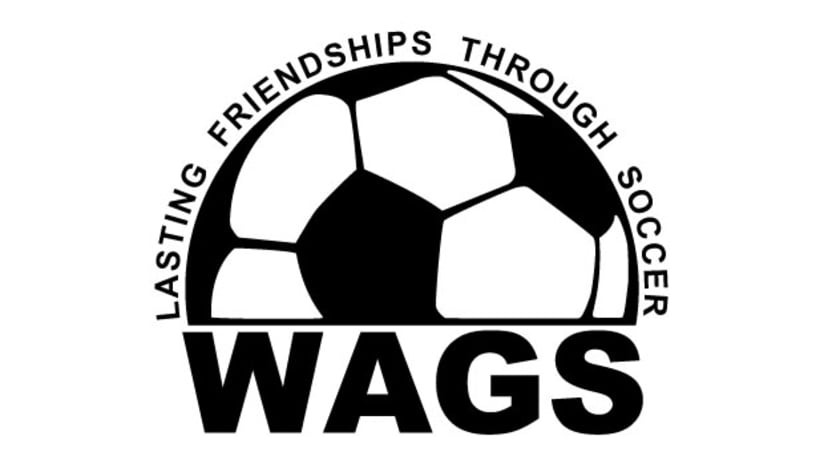Forty years ago, there was no Washington Area Girls Soccer league. Female players had to settle for local-level soccer, and there was no such thing as playing statewide on a competitive level. There were no travel teams, and little to no stage for girls to be recruited by colleges.
Competitive soccer for girls just didn't exist.
Mavis Derflinger, however, wasn't going to settle for that answer. Noting the many playing opportunities available to her son Rick in the early 1970s, she resolved to help create similar situations for her daughters -- and eventually succeeded beyond her wildest dreams.
"Mavis was one of the original founders of the league, and she served numerous other roles in the community for females, but her role within WAGS is what we are honoring [on May 8]," said Kathie Diapoulis, the current WAGS president.
So Diapoulis and her WAGS colleagues have marked this Sunday as "Mavis Derflinger Day," a league-wide tribute to its co-founder. All teams will wear black armbands in the day's matches and prior to each game, there will also be a moment of silence.
"We have an ODP scholarship we started in her honor, as she was absolutely passionate about the ODP program, and it’s a nice thing. But it doesn’t make you stop and go, 'Oh, that’s who she was,'" explained Diapoulis. "So I made a day where all the games will be played in her honor, and we picked May 8 because it’s Mother's Day. She was the mother of girls' soccer in this area. She loved it and raised it here."
Derflinger began her soccer career when she coached a girls' team in Lee-Mt. Vernon (1969). In 1974, she teamed up with Rael Vodicka to make WAGS a reality. While initially involving only four clubs, the league became so successful that Maryland and Virginia created their own state youth associations. Derflinger served as WAGS Treasurer, then was elected president of the Virginia Youth Soccer Association (VYSA) and was named the Region I Director for the United States Youth Soccer Association (USYSA) by the mid-1970s.
She became the first female Board member of the U.S. Soccer Federation (USSF) in the early 1980s and in 1986 was elected Chairman of U.S. Youth Soccer, which put her on the USSF Executive Committee.
In 1994 Derflinger, along with Betty D’Anjolell, took the first Under-19 Women's National Team to travel outside the U.S. The team played in Iceland, Germany, Norway and Holland. Mavis was also the head of delegation for the women's teams that traveled overseas to compete in Jessolo, Italy and in Varga, Bulgaria.
Many players who played on that U-19 team, including the legendary Mia Hamm, would go on to great success at the senior level.
Derflinger also used her influence to help persuade the U.S. Olympic Committee to accept women's soccer into its annual sports festival in the early 1990s. By 1996, women's soccer was an Olympic sport, and the U.S. team won the first Olympic gold medal in Atlanta.
As part of her work with the U.S. Youth Soccer Association in the late 1980s, Mrs. Derflinger helped launch Soccer Start, an inner-city youth soccer program that trains coaches and provides equipment and uniforms for start-up teams in poor neighborhoods.
"I can offer [a child] a fun game...that he can play without his parents having to lay out a lot of money," she told The Washington Post in 1990. "And he can belong to something. Children like to belong, to have something to identify with."
Derflinger fought tirelessly for funding for women's soccer and sees the development of the USWNT as one of her proudest achievements. USSF voted her a “Life Member” in 1990. She received the Sporting Goods Manufacturers of America “National Heroes Award” in 1995 for her dedication to soccer in the local community.
In 2004, Mavis was the first woman inducted into the CONCACAF Hall of Fame. She was a tremendous advocate for women's soccer, and while she passed away on October 14, 2010, her legacy lives on in the thousands of female soccer players that participate every year.
"When I walk around and look at a soccer field and see the number of girls playing this sport, it makes me proud that my mother played such a huge part in the development of girls' soccer," said her son Rick in an interview with the Washington Post last year. "All that exists today is an offshoot of what took place in the 1970s and 1980s."
All teams participating in WAGS this spring should have received packets of black armbands to wear on May 8. If teams did not receive arm bands, they should contact the WAGS office.
"I was trying to think of a way everyone could participate, and that the girls would recognize that Mavis is a large part of why they are out there playing," said Diapoulis.
"They wouldn’t have WAGS if it weren’t for her, and those armbands are a tangible proof of what she did for them," she added. "I would like them to remember with every step, every kick of that ball, that it took a lot of effort and perseverance in a time when girls weren’t thought of as mainstream athletes, and it’s people like Mavis that gave them the opportunity to play soccer. They should thank her for putting the effort in for all of them."




